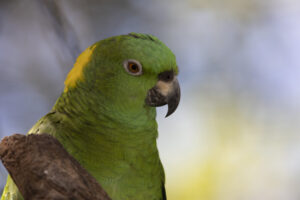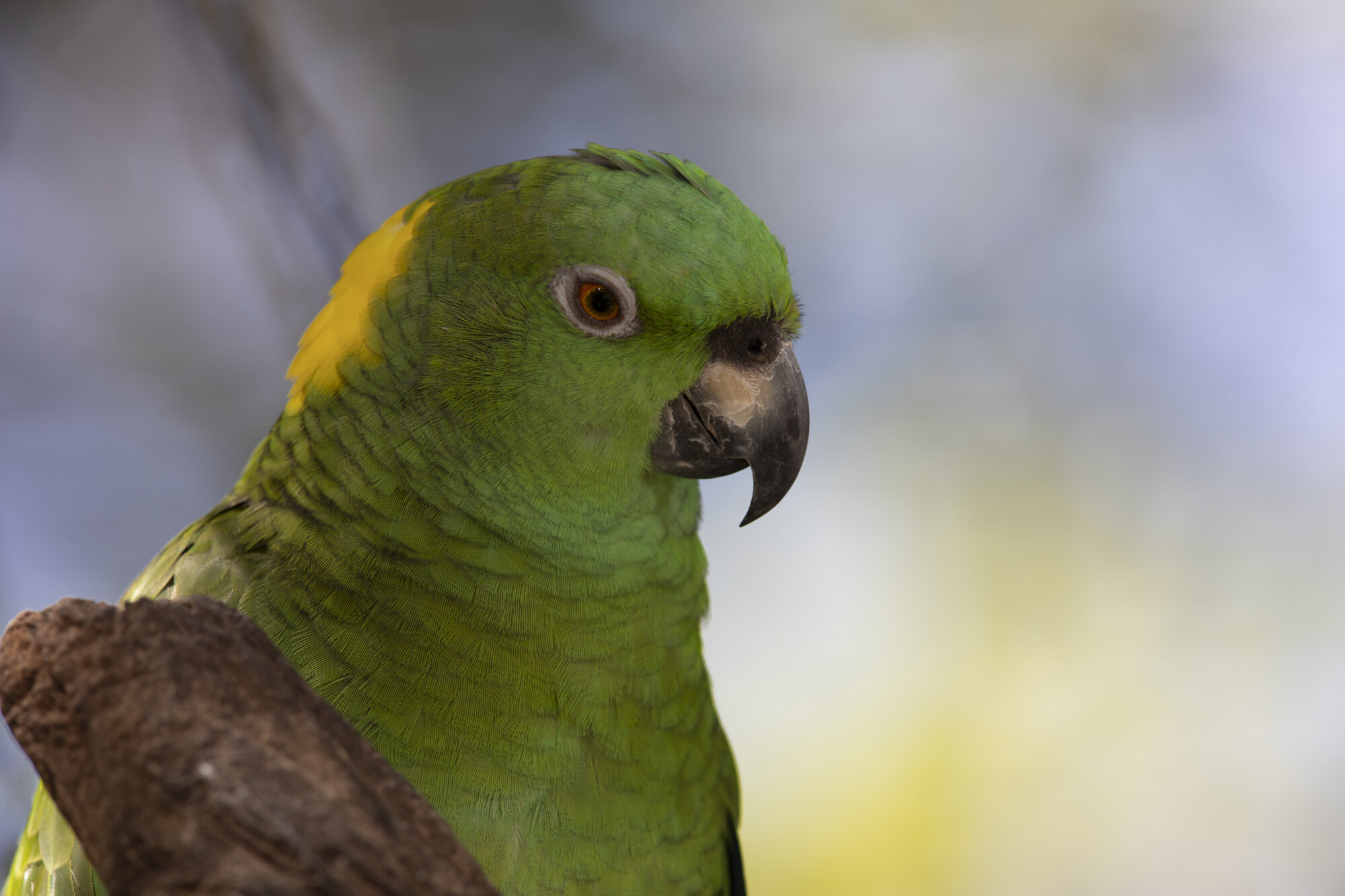
Costa Rica is a remarkable country with a growing national interest in preserving its land and life. It is home to several parrot species, one of which is the yellow-naped Amazon parrot (Amazona auropalliata).
This species has a wide geographic distribution from Mexico down through most of Central America. However, while the yellow-naped Amazon is common in captivity, it faces challenges in most Mesoamerican countries. For example, poachers murdered Mr. Arriola on his ranch in Guatemala in 2021 (see my October 2022 post). IUCN lists yellow-naped parrots as Critically Endangered, and it is cataloged on Appendix I by CITES, which means trade is completely banned. Costa Rica puts the yellow-naped Amazon parrot on its Official List of Species in danger of extinction.

In Costa Rica, the National System of Conservation Areas of the Ministry of Environment and Energy (SINAC-MINAE) is responsible for wildlife conservation. SINAC manages established conservation areas and enforces laws passed for the protection of a species. It also responds to complaints or information about trade, poaching, or illegal possession of parrots in captivity.
There are about 50 complaints per year, which it considers significant, but there are many parrots in homes where no complaint is ever filed. Many of these birds live in situations with poor nutrition or endure physical deformities due to their trapping experience or lack of possible movement in small cages. This means they are destined to permanent lives in captivity, even if found, confiscated, and moved to rehabilitation facilities.
Prior to the 21st century, about 18% of the Costa Rican population kept parrots in their homes; of these 27% were yellow-naped Amazons. Thankfully, things continue to change for the better with an increased interest in conservation, especially in urban areas. However, in the rural areas it is still common to find parrots kept illegally even when people are aware of the penalty or ecological impact. Looters take advantage of this interest, selling birds on a variety of illegal markets. They are sold for $9-36 USD at a local market, or $45-80 USD in urban areas.
A Campaign of Awareness

SINAC is working with NGOs, private companies, rescue centers, and the local population to develop awareness campaigns about the plight of the yellow-naped Amazon in Costa Rica. It aspires to take annual counts of the population, and to work with police to stop illegal transport and poaching. SINAC is also developing strategic alliances with surrounding countries because, for conservation of a species to succeed, we must look at the totality of the problem and its possible solutions.
Since 2018, Evelyn Solano Brenes has worked for SINAC as the Manager of the Wildlife Management and Conservation Program in the Guanacaste Conservation Area. Her work and that of SINAC are hopefully going to make a difference for the yellow-naped Amazons of Costa Rica! This month’s Lafeber grant goes to help support those efforts.
